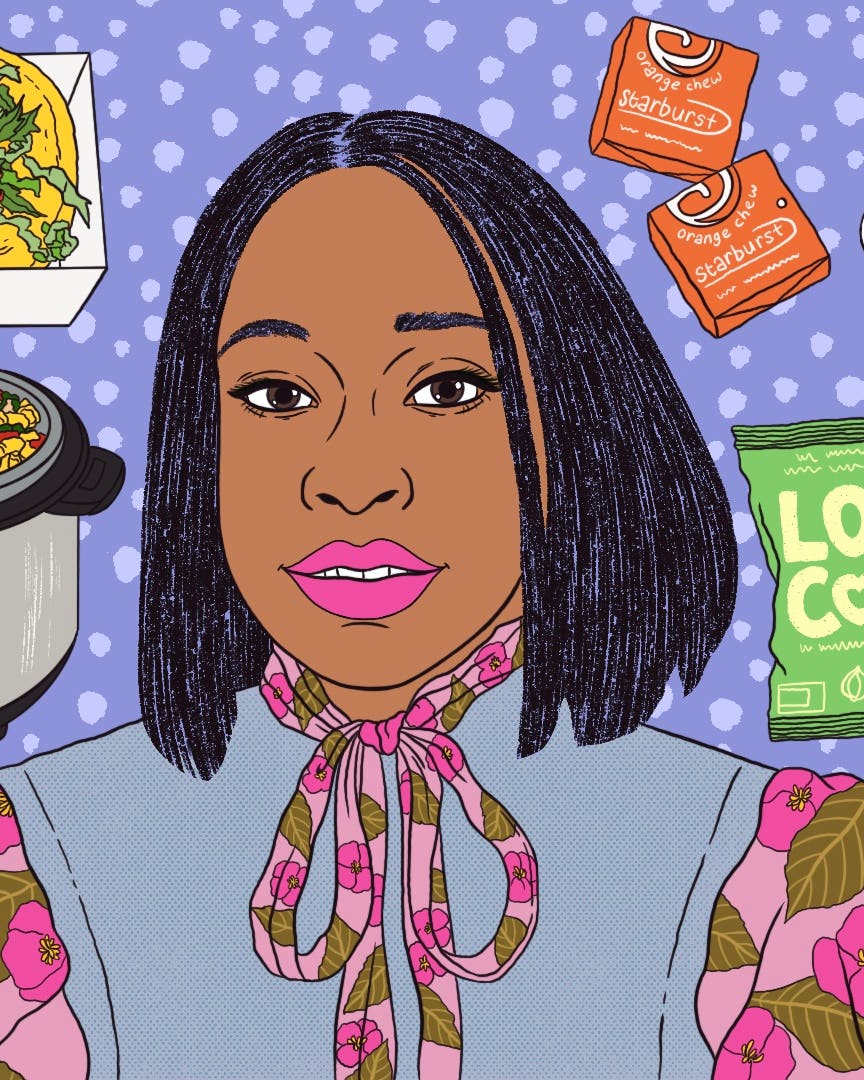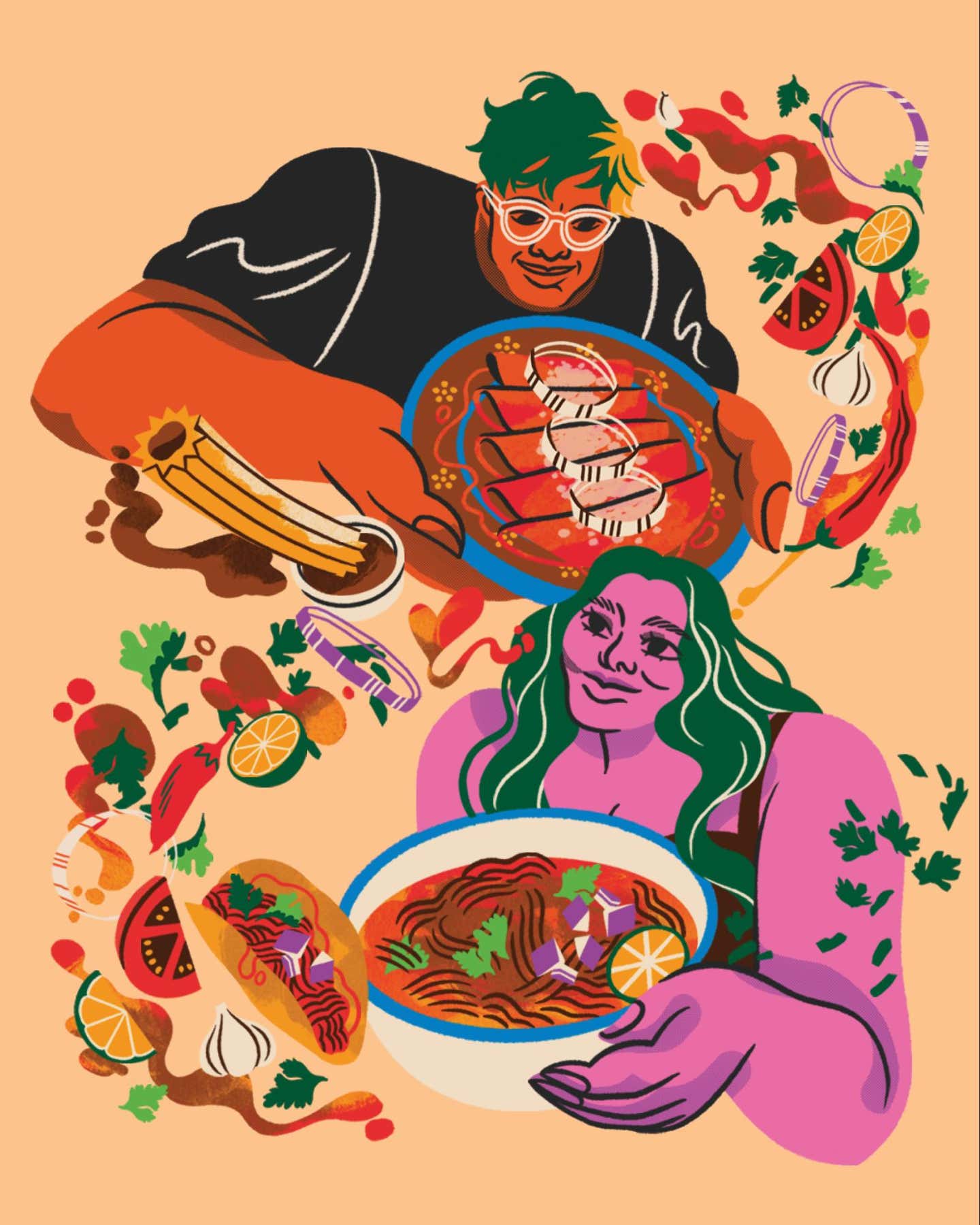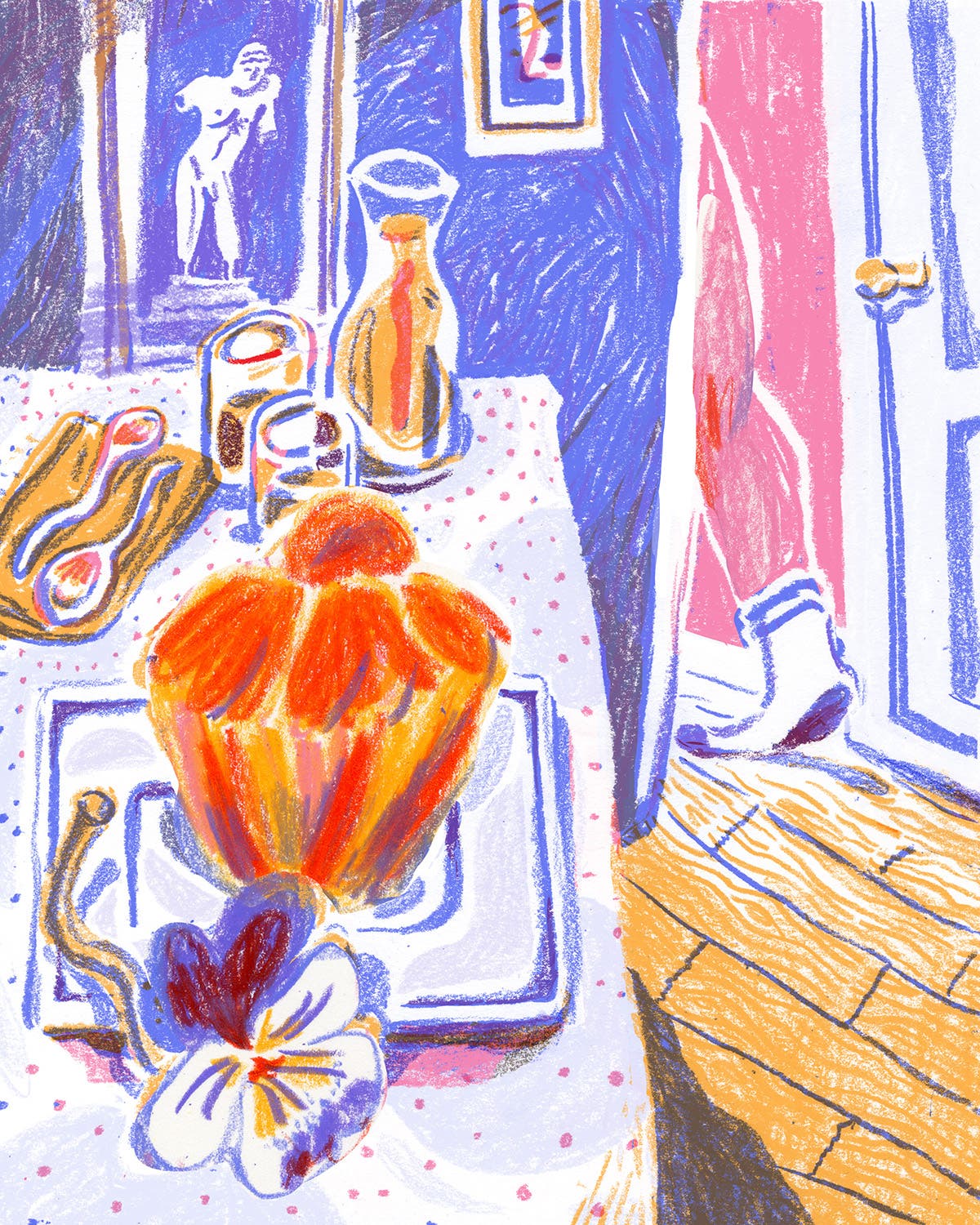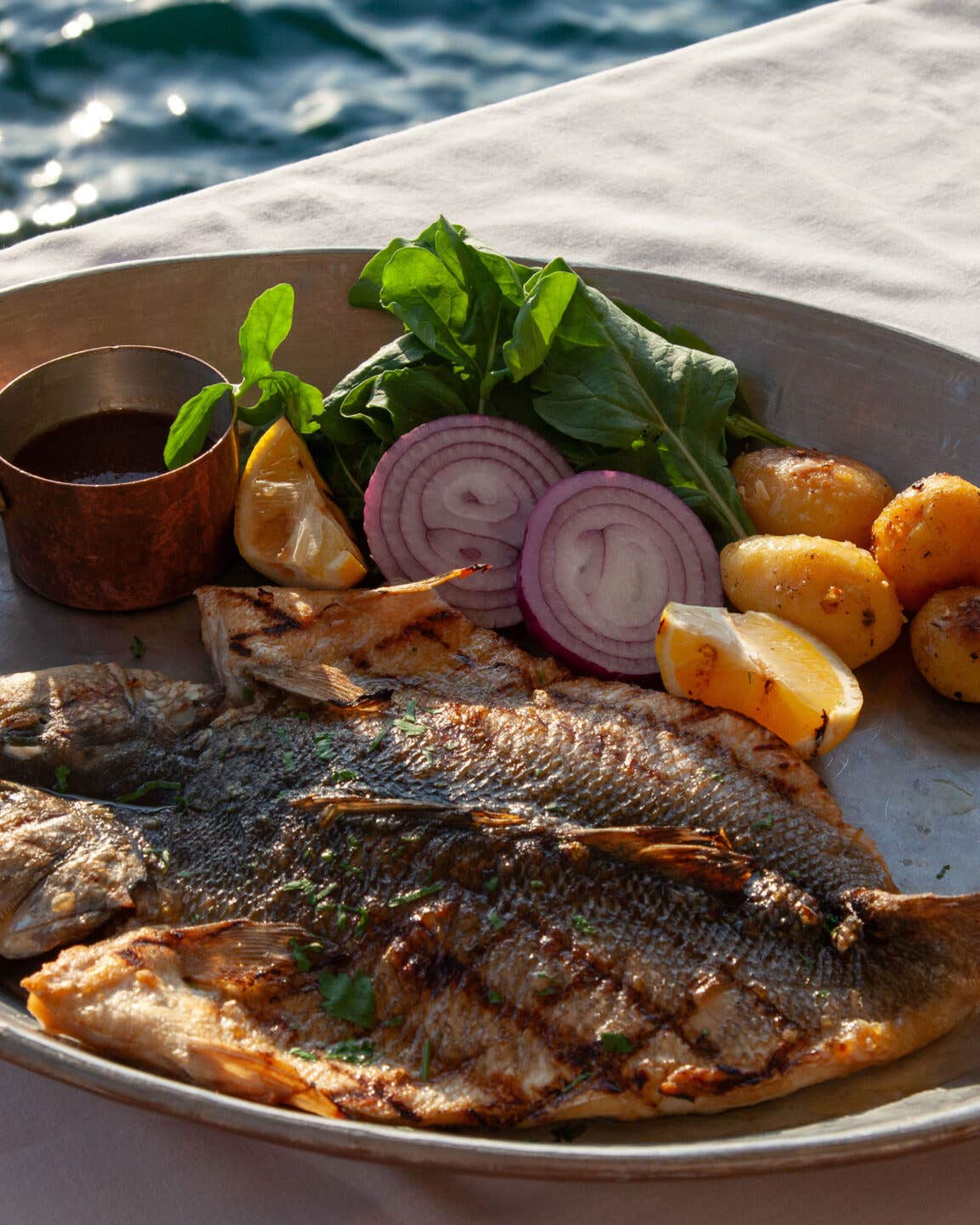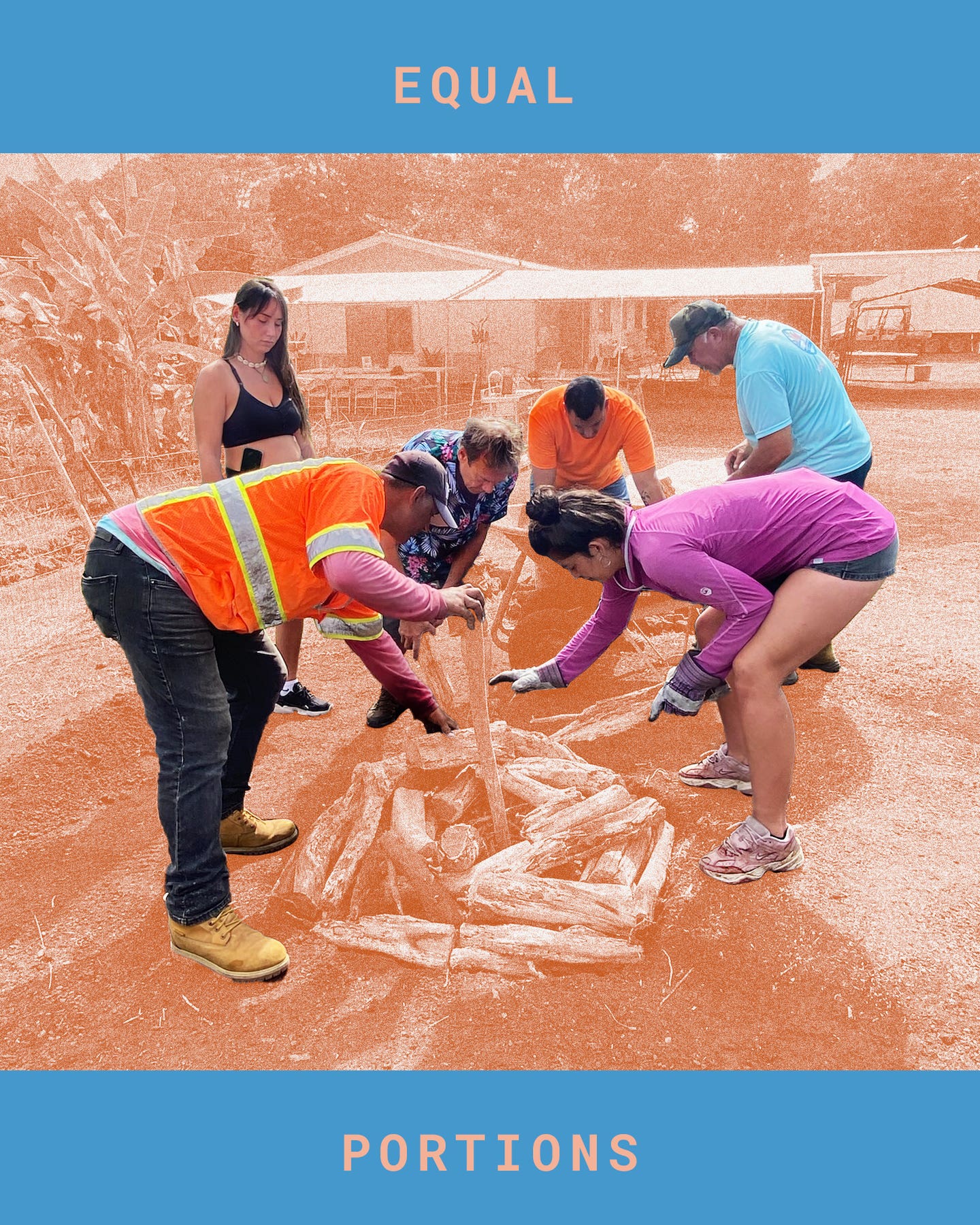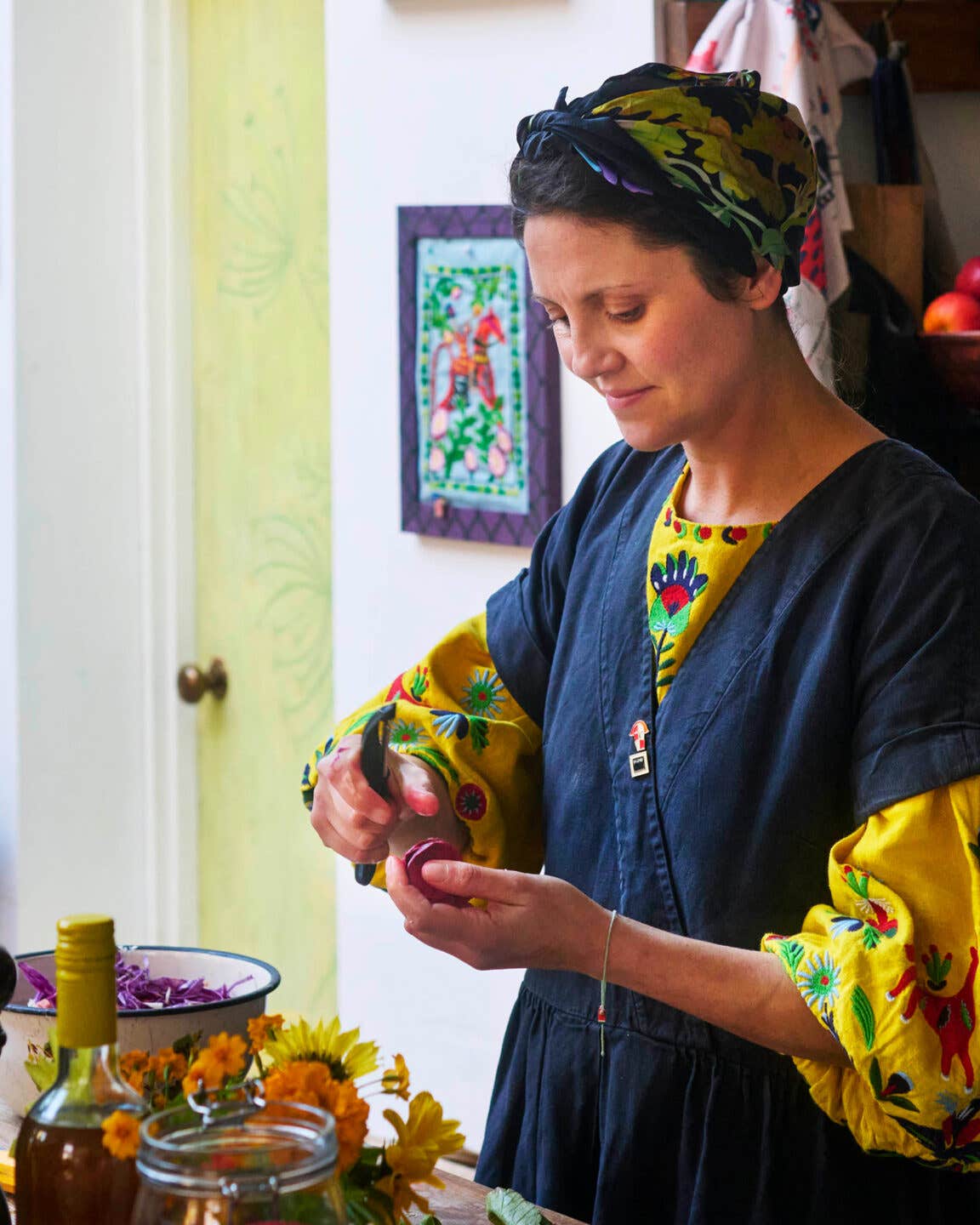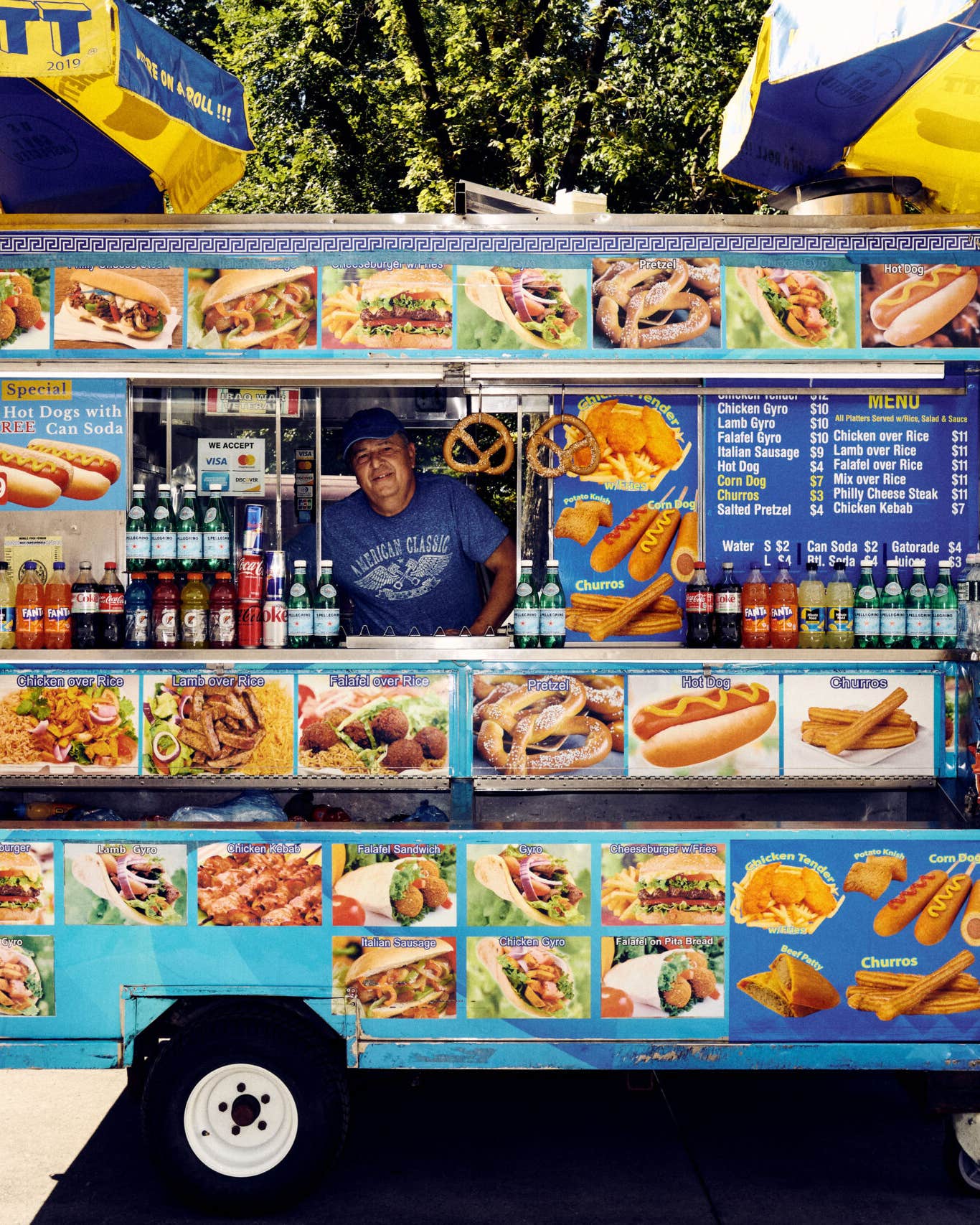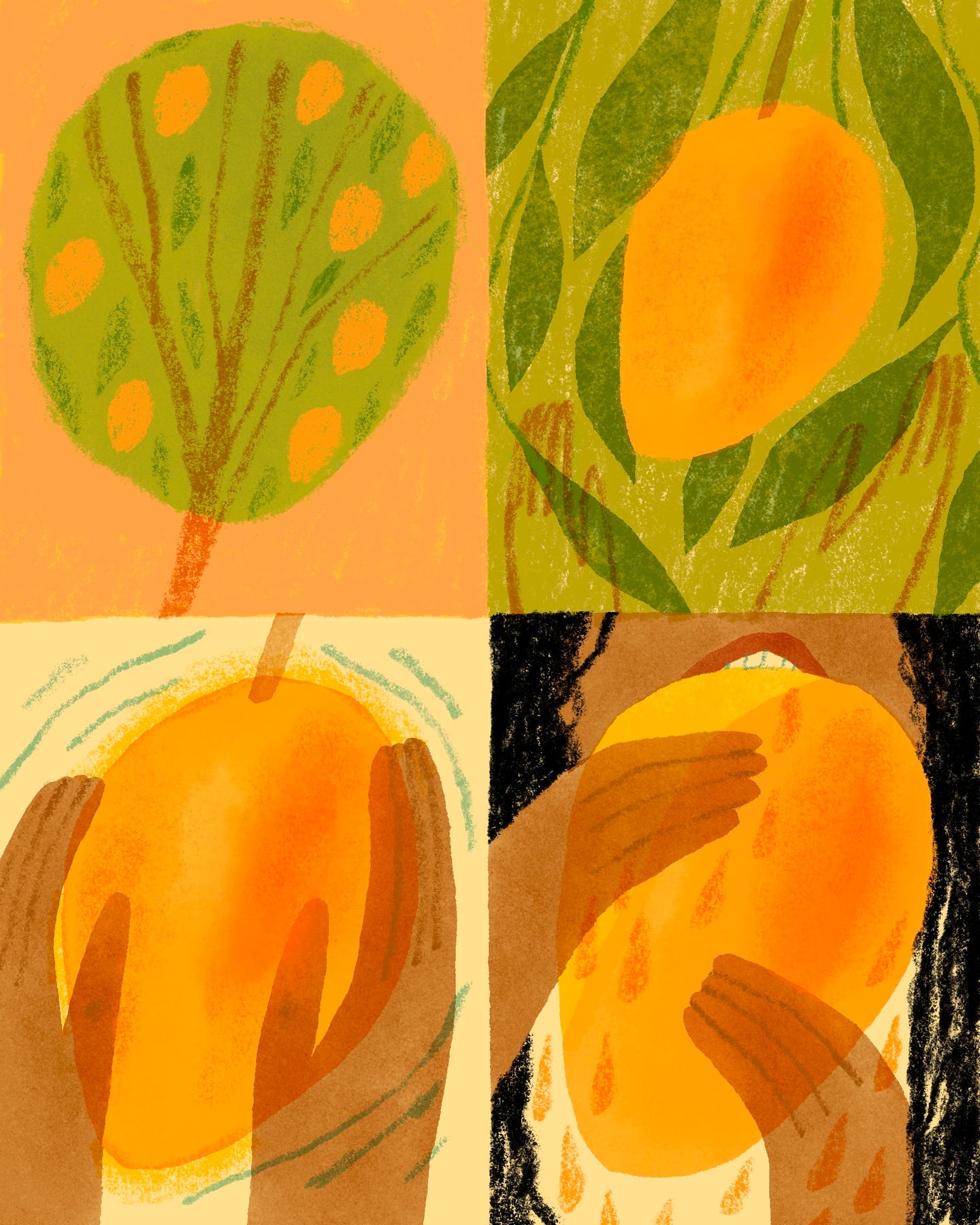
Why Osage Chef Ben Jacobs Launched a Direct-to-Tribe Meal Delivery Service
Seed to Soul is bringing bison, wild rice, and other Native foods to those in need in Indian Country.
Food is more than what’s on the plate. This is Equal Portions, a series by editor-at-large Shane Mitchell, investigating bigger issues and activism in the food world, and how a few good eggs are working to make it better for everyone.
“This is food that’s nourishing, but also spiritually supportive,” says chef Ben Jacobs, who this fall started Seed to Soul, a ready-to-eat meal program for Native American communities. A member of the Osage Nation, Jacobs co-owns Tocabe, a fast-casual restaurant serving an Indigenous menu of ethically sourced ingredients in Denver. In May, he and his partner Matt Chandra converted their second restaurant location into a production facility for an online Indigenous Marketplace venture and a direct-to-tribe “food as medicine” nonprofit that delivers traditional nutrients—bison, manoomin (wild rice), tepary beans, blue corn mush, wojapi (berry sauce)—to people who consider these foods an intrinsic aspect of their cultural heritage. Jacobs explains this initiative was born from a frustration with major corporate donations provided to tribes, food he describes as “usually lower quality, at the tail end of its shelf life.” Truckloads of junk food, or supermarket produce verging on spoilage. “It’s perceived as dumping trash into a community. Instead, we’re providing something that’s meaningful and comes from other Native hands.”

Jacobs’s intent is to rebuild Native pantries in rural settings where groceries, especially those that sell fresh and traditional foods, are far and few between. At the same time, he wants to contribute to a sustainable supply chain of tribal producers, farmers, and ranchers. Seed to Soul partners with a cohort of notable purveyors across North America, familiarly known as Turtle Island, like Sakari Farms in Oregon, Séka Hills in California, Navajo Mike’s in Arizona, and Ute Mountain Ute Tribe Farm and Ranch in Colorado. Tocabe has also teamed with Red Lake Nation Foods in Minnesota to invest in Arctic Circle Wild Seafood, a Native company that supplies wild-caught salmon out of the Iñupiat trading village of Kotzebue, Alaska.
Food sovereignty remains tenuous for many in Indian Country, particularly among elders, who are at greater risk for developing diet-related diseases such as diabetes, obesity, and high blood pressure. The ancestral diet, which contained more complex carbs and fewer fats, centered on whole grains, squash and beans, and wild fish and game. This was before first contact with European colonizers, forced assimilation and relocation to reservations, and intentionally destructive practices by the federal government to eliminate customary food sources. Consider the bison. Slaughtered to the verge of extinction by the late 19th century, a tactic condoned by the U.S. Army as a means of eradicating the “Indian commissary.” Crow Nation chief Alaxchiiaahush (1848-1932) said: "When the buffalo went away, the hearts of my people fell to the ground, and they could not lift them up again. After this nothing happened. There was little singing anywhere."

But the buffalo did come back. To be precise, “buffalo” is a loan word introduced by Europeans; the American bison is a distinct bovine species. Alaxchiiaahush most likely would have used the Apsáalooke word bišée. Documentary filmmaker Ken Burns recently traced its history and recovery for his new PBS series The American Buffalo. Jacobs now sources bison for Tocabe from Cheyenne River Buffalo in Mobridge, South Dakota. The Sioux-owned ranch is a regular stop on monthly delivery runs north from Denver, when Seed to Soul meals are dropped off at the Spirit Lake Dakota Reservation. “Bison is synonymous with the Plains tribes,” says Mary Greene, director of the reservation’s food distribution program. “All of its parts were used in multifaceted ways.” About 7,500 enrolled tribal members reside on Spirit Lake land, which encompasses approximately 405 square miles. The North Dakota reservation has only two convenience stores, and a grocery connected to its casino. The nearest big-box store is a 120-mile drive, one-way, from the tribe’s most populous town. “We’re very isolated here,” says Greene. “And it gets tougher in winter. Having traditional heat-and-eat food is a great resource, especially for our elders.” Greene applied for a local food purchasing grant through the USDA’s Agricultural Marketing Service, which allowed her to bring donations from Jacobs and Chandra to the table at the beginning of this year, and now that Seed to Soul has launched, her community receives over 1,000 prepared meals a month. “Any opportunity to offer additional sustenance is a bonus for our community. It helps out those most in need,” says Greene, who first met Jacobs and Chandra after stopping in for a meal with friends at Tocabe in Denver. “Ben and Matt are outside-the-box thinkers.”

Seed to Soul is already widening its reach. In January, meals will be delivered to the Denver Indian Center and pantry goods to the Osage Nation, in partnership with Oklahoma State University’s Center for Indigenous Health Research and Policy. According to Jacobs, the two most popular prepared dishes sent out as donations are his Sonoran Bowl—a creamy blend of wheat berries and tepary beans, Navajo-grown pinto beans, squash, and fire-roasted green chili nopales—and his Posu Bowl, with purple sweet potatoes, Great Northern beans, fire-roasted corn, and Red Lake wild rice. (Posu means wild grass in the Osage language.) Both are paired with slow-braised bison meat, the exact same portion offered to Tocabe customers.
Sharing that generously is good for the soul.
Contributions to Seed to Soul are funded through Tocabe’s Indigenous Marketplace. The more products you buy, the more the nonprofit can donate. Also please consider supporting two new cookbooks by Native American chefs this season: Loretta Barrett Oden’s Corn Dance: Inspired First American Cuisine and Lois Ellen Frank’s Seed to Plate, Soil to Sky: Modern Plant-Based Recipes Using Native American Ingredients.
Keep Reading
Continue to Next Story
